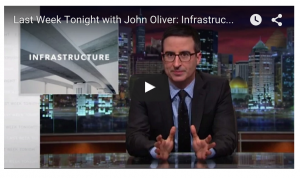In July, the Metro Vancouver Regional District board passed a new policy to value GHG emission reductions at $150/ tonne (constant, nominal) CO2e in the evaluation of capital projects. This price is inclusive of externally imposed carbon prices, i.e. B.C.’s existing $30/ tonne carbon tax. Metro … Read More
Naka Incinerator – Hiroshima, Japan
I recently took a personal trip to Japan with my family, and in addition to the sightseeing of ancient temples and shrines, thoughtful museums, and hyper-modern cityscapes, I took a tour of the 'Naka Garbage Incinerator' (aka. waste to energy facility, or WTE). The Naka Incinerator is located in … Read More
District Energy + Water Academy Report Release
The first ever District Energy and Water Academy drew attendants from near and far, reaching across the globe from Vancouver as far as Auckland, New Zealand. Our program took participants beyond the building-scale, with practical and proven strategies for feasibility, financing, policy, and … Read More
Powering a Low Carbon City with Local Resources
Population growth in urban areas can lead to prosperity, but the city has to keep up with this growth to avoid being choked. By 2041, Southern Ontario is expecting the population to grow from 9 million to 13.5 million. On October 6th & 7th, CityAge: Build the Future will be taking a look at … Read More
Tall Buildings and Urban Habitat in Toronto
The mechanical, electrical and plumbing (MEP) systems embedded in urban developments offer an increasing number of opportunities while becoming more complex. On October 4th, The Council on Tall Buildings and Urban Habitat (CTBUH) is hosting a dialogue in Toronto to discuss new technologies and … Read More
District Energy + Water Academy
Communities across North America have an enormous opportunity to benefit from neighbourhood-scale water and energy systems. Goals like reducing carbon emissions, improving energy efficiency, maximizing waste re-use, increasing resiliency, simplifying operation and maintenance, and decreasing cost … Read More
In Conflict or in Concert: Green Building Policy and District Energy
As cities strive to achieve low carbon outcomes for buildings, one of the major tools at their disposal is a green building policy, such as requiring certification with LEED or other standards. In dense areas, with the right development patterns, cities may also have the opportunity to develop or … Read More
Finding Common Interest: When Does a Developer Become a City Builder?
Lately I’ve been wondering a lot about what distinguishes a good developer from a great developer, and when a developer becomes a city-builder. Last year I was invited by Lendlease’s new Green Utilities division (now branded as Podium) to tour several of their large urban regeneration projects in … Read More
Cloud Computing vs District Energy
Infrastructure: a bunch of people who need the same thing (power, water, or the ability to get to work) find a large scale solution. Cloud computing is another version of this. For a nice writeup on the case for the cloud, see this post on James Hamilton’s excellent blog. To summarize James, most … Read More
“Anything Which Can Be Destroyed in an Action Movie”
A fun piece from John Oliver on infrastructure, which he defines as “anything which can be destroyed in an action movie”[1]: https://www.youtube.com/watch?v=Wpzvaqypav8 The message, which you have no doubt heard before, is that we should spend more on infrastructure. What John Oliver misses is … Read More









